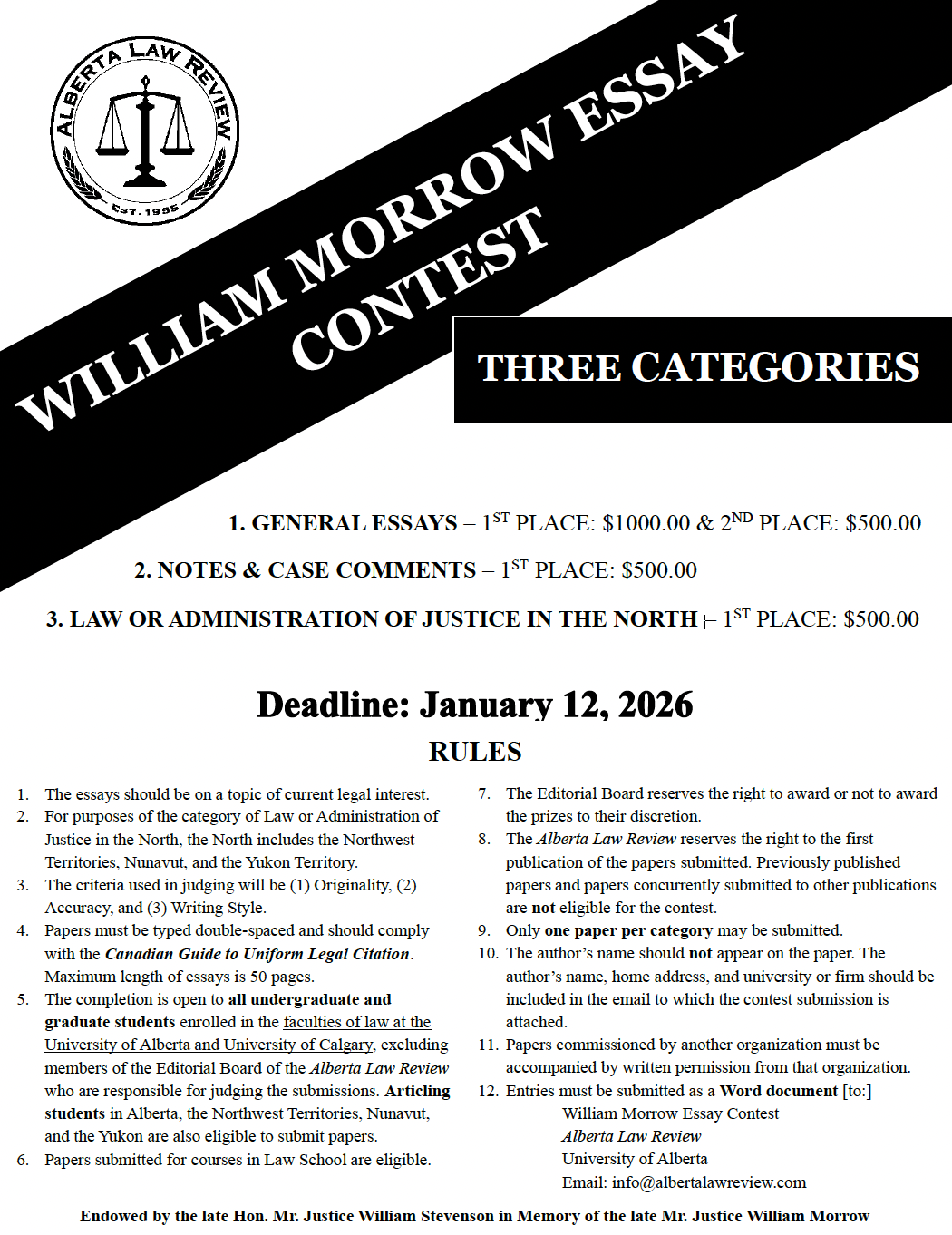Welcome to the Alberta Law Review
The Alberta Law Review (ALR) is a student-run publication whose primary purpose is to enhance discourse on Canadian legal issues. Founded in 1955, the ALR is published by the Alberta Law Review Society, an organization consisting of law students at the University of Alberta and the University of Calgary. Built upon the hard work of student editors at both law faculties, the ALR is published every quarter and has roughly 1,000 pages per volume.







